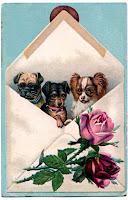NOBILITY IN YOUR HUNGARIAN FAMILY ? LGBTQ : GENEALOGY PRO TIP #9
No, I personally have never found a genealogy worthy document that stated that a certain noble was lesbian, gay, bisexual, transgender, or questioning their sexuality or gender. In 2021 in America there is generally a different more accepting feeling about "gay" people.
I suspect LGBTQ people existed in Noble families. I doubt this was acknowledged in documents even if the person, the family, the village, or the church or military knew.
Why then am I making my last post in this series about Hungarian Nobility research about Medieval sex? Or 17th century sex? Or even 19th century sex?
Well, I'll tell you. There was such pressure on nobles to marry and have heirs at a time when so many children died before they could marry and reproduce, I feel that it would be damn difficult for anyone to avoid this procreation duty even if it was no fun and turned a person off. There were arranged marriage for political alliances and status and money, and power, all across Europe this matchmaking that didn't always consider a person's feelings or needs, love, companionship, attraction, I can barely wrap my mind around it. Mismatches made for misery. Nobles might have mistresses they could not marry. They had illegitimate children who could not be their heirs though there might have been ways around giving them acknowledgement, opportunities, or money. Noble men could get away from their family and spend most of their time with other men in armies, in fields, in monasteries.
As a lesbian noble lady, you might have all the luxury in the world and no companionship. Women by gender especially had such limited lives. So, few choices. They were not free to come and go.
Nevertheless, when I was reading through generational charts for Hungarian Nobility, though I know infertility existed and venereal disease existed, and men went off to war and died before they could reproduce, when I read "no issue" I wonder if that person might have avoided hetero sex. If they married, I wonder if they had a sexless marriage.
An option for some LG people was to become a priest, sister, or monastic.
Spinsters were considered to be burdens to their families, at worst, at times, witches.
Homosexually or non-procreational sex was considered sinful and perverted. So, you'd have to sneak, and it was dangerous to be caught. Yet, It happened. I wonder what the punishment was.
What did unmarried people do for fun? Dancing. Boys going to see the girls working in the spinning house. Flirtations in folk tradition. Songs about love with heart. You had a chance at real first love in the village with a girl you used to run and play with.
Another reason for this post is that genealogy is exposing us to and reinforcing that normalcy is about having children. After all, those of us without children are not passing on our DNA.
Today being Childless By Choice is an honorable option.
I hope that you will seek to remember those who are Never Married No Kids as well on your genealogy charts.
Interview them!
C 2021-2025 Magyar-American BlogSpot All Rights Reserved including Internet and International Rights
This post is part of a series about Hungarian Nobility research. To bring up all the posts in the series, click on the tag Gen Tips - Hungarian Nobility in the Family
